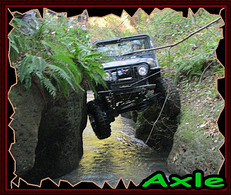Quote
PQIA Slams Substandard Motor Oils
By John M. Vockley
The Petroleum Quality Institute of America (PQIA) warns consumers not to buy multiple lubricants “that prey on the people least able to afford them.”
The most recent alert, issued Jan. 7, warns of two motor oils in the Mid-West, Super XXX sold by New World Sales of Midlothian, Ill., and Liberty Gold Plus SMO sold by Pinnacle Brands of Chicago because they could potentially damage engines. Pinnacle Brands is not related to either to Pinnacle Oil of Indianapolis or Pinnacle Resources of Pine Bluff, Ark. Repeated attempts by Lube Report to contact both companies were unsuccessful.
PQIA issue a Dec. 21 “Don’t Buy” alert for products bearing Super Star, Royal Star, City Star and Royal labels. “These brands are frequently found in the urban areas in Ohio, Michigan, Indiana and Illinois, and they will cause harm to car engines and transmissions,” because their viscosities are significantly lower than needed to protect engines, PQIA President Thomas Glenn said. PQIA, (http://www.pqiamerica.com) based in Metuchen, N.J., tests and reports on the quality of lubricants in the U.S. market.
In November, PQIA issued “Buyer Beware” warnings on two automatic transmission fluid: City Star and Everclear. “The very low viscosity of these products, lack of additives and high silicon levels indicate these products may cause damage to automatic transmissions,” its report stated
“It appears that the producers and marketers of these bad motor oils are preying on people in lower income communities where purchasing decisions are often made on price,” Glenn said.
Al Kdouh, who said he was the son of the owner, said his company, City Petroleum, does not sell the City Star brand as a replacement for a vehicle’s regular motor oil. “This is intended to be a top-off oil, nothing more,” he said. “It’s for people who find themselves down a quart of oil and don’t want to spend the extra money on an expensive brand.”
“If a customer came to me and asked to buy City Star for an oil change, I wouldn’t sell it to them,” Kdouh said. He added that City Star is one of 30 brands his wholesale business sells. “If you’re using this type of oil, you should get an oil change.”
PQIA’s Glenn found the reasoning questionable.
Mixing an unknown product into motor oil can have serious consequences, he said. “And if you keep adding a quart of this stuff every couple of weeks because your car burns oil, eventually, you’re going to have a car that only has City Star in it,” he said.
According to Glenn, when PQIA tested City Star, it found silicon in excess of 1,000 parts per million. “Based on the silicon chemistry of the oil and the low 2.6 viscosity, I would say this was transformer oil in a previous life.”
Kdouh said that City Star was rerefined oil, but that he didn’t know the name of the rerefinery it came from. He also acknowledged it was not licensed by the American Petroleum Institute. He said City Petroleum received City Star straight from the plant. “We don’t add anything to it.”
He said Glenn’s assessment of City Star was accurate, but said it was up to consumers to know what they were putting in their cars.
One oil that PQIA warns against comes from a producer that has been a thorn in the side of a company that bears a similar name. Pinnacle Brands, listed as based in Chicago, although it has no known address or phone number, is often confused with Pinnacle Oil, Inc., of Indianapolis. Pinnacle Oil produces passenger car engine oil, heavy-duty diesel engine oil, transmission and drivetrain fluid, industrial oils, gear oil and other specialty products.
Nor is Pinnacle Brands related in any way to Pinnacle Resources of Pine Bluff, Ark., which manufactures and supplies bulk lubricants to resellers, packagers and equipment manufacturers
“Let’s just say it’s been a continual problem,” says Kimball L. Morris, chief executive officer of Pinnacle Oils. “We try like the devil to watch our reputation.”
“It’s an industry wide problem that someone has to take care of. It really amounts to consumer fraud,” said Morris, who sits on PQIA’s advisory board. He added that the Federal Trade Commission and other government agencies have been made aware of the problem.
Glenn says that “most private label lubricant brands on the shelves are typically quality products that meet the most recent specifications and often provide consumers with lower price alternatives to major brands. Some, however, give the industry a bad name.”
PQIA tested Super XXX and Liberty Gold Plus SMO in 2011 and 2012 and found serious deficiencies with the products each time tested. “These products have viscosities painfully lower than needed to protect an engine. In addition, they contain little to no additives to protect moving parts, and they have very high levels of silicon which is often attributed to abrasive contamination,” Glenn said.
The viscosity of Super Star Automatic Transmission Fluid is more than 20 percent below where expected, it contains water and has unusually high levels of silicon, potassium, sodium, aluminum, and iron, indicating that this product may contain used oil and/or antifreeze, PQIA reported. According to Glenn, other than stating the product is "Made in USA," its label does not show the name or location of the manufacturer or distributor of the brand.
“The results of the tests conducted on samples of both the City Star and Everclear ATF show products that do not meet any definition of Automatic Transmission Fluid,” Glenn said. The very low viscosity of these products, lack of additives, and high silicon levels indicate these products may cause damage to automatic transmissions, he added.

 Help
Help








